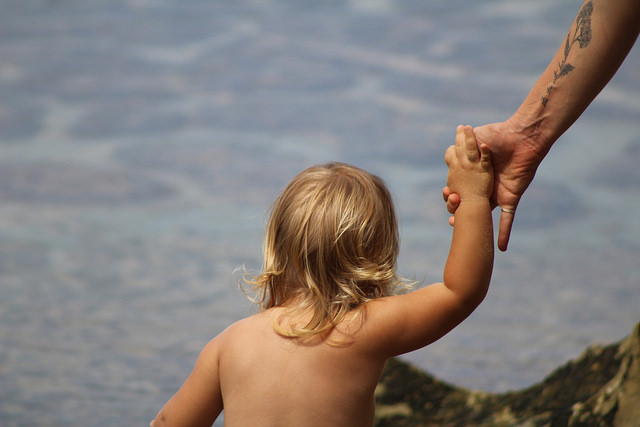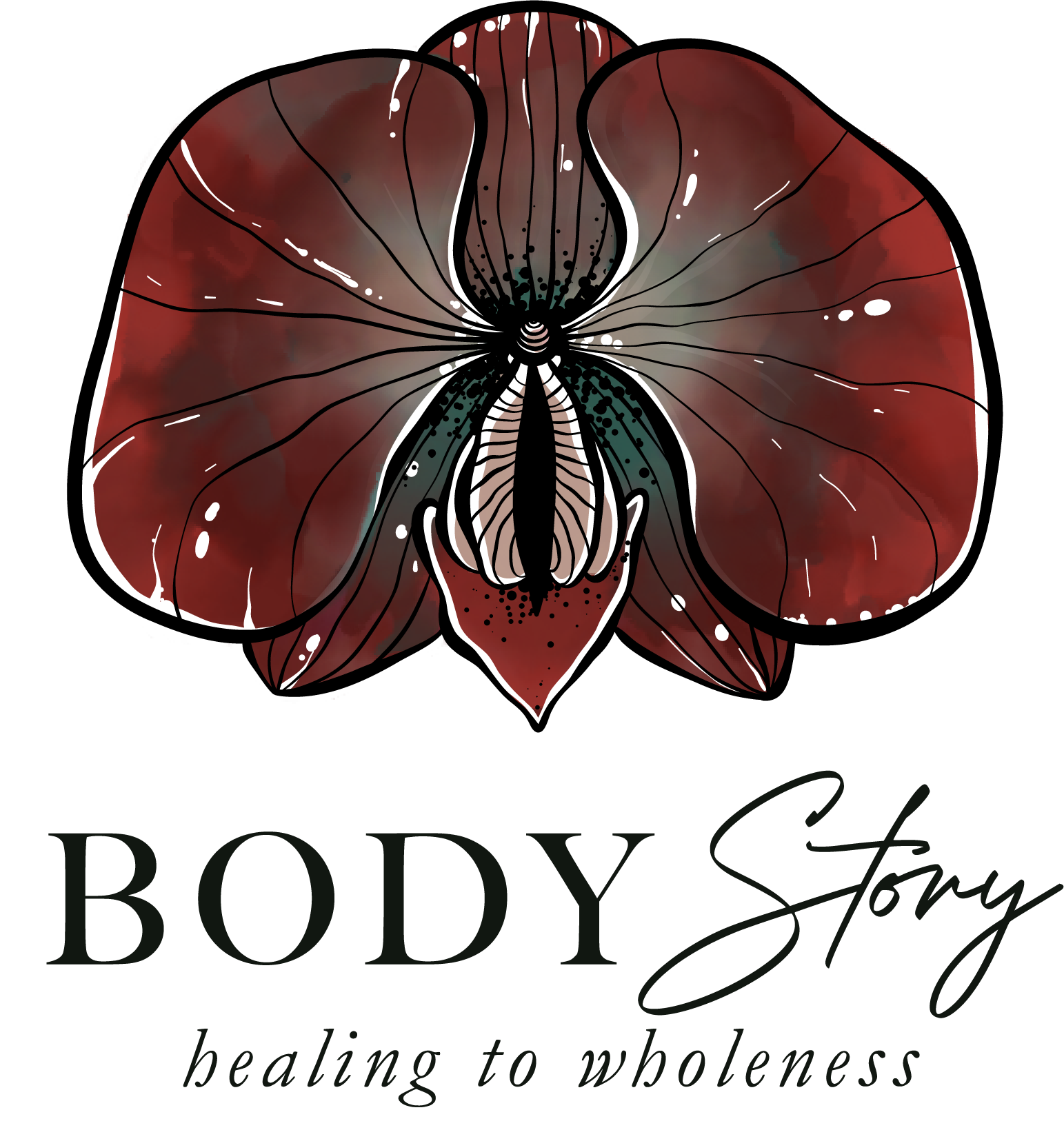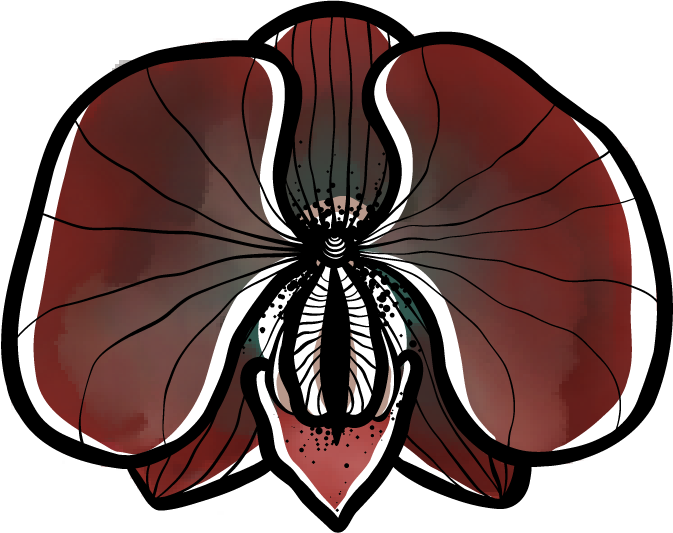It’s just after 1:00 p.m. My three-year-old daughter and I make the slow walk from her school back to our home. It is a walk that takes me seven minutes alone, but with her, we take about a half hour. It’s filled with questions: What’s that flower? What’s under that pile of leaves? Why is that man walking? And of course, there is time to say hello to her friend Gustavo, who owns the hardware store down the street.
This is her time. A time to meander and to not be pushed. A space to become fully immersed in that timeless state of childhood that I am sad to admit is not possible in all other parts of her day.

Such as the morning. On the way to school, I push her in a stroller. We are expected to be there at a certain time, a deadline about which I seem to be the only one who cares. We move faster in the stroller (or the car if things have gotten very off track). But on the way home, we have no deadlines. I let her pause me. We walk under the midday sun, enjoying the amber rays on our skin. I allow myself also to wonder what these flowers and leaves and walking men are all about. I, too, wonder how Gustavo is doing, and take a moment to check in.
The old impatience
I didn’t always value such slow walks. In fact, for the near decade when I lived in New York City, I prided myself on my fast pace of walking. Even striding along in heels I could outpace most people hustling from one part of their packed schedule to the next. I was terribly impatient, prone to outbursts if tourists blocked my path by daring to pause and look up at the forest of buildings.
When I left the city, I didn’t expect to feel so unfettered. Released from a day filled with intense stimulus, I panicked at the silence of spare time. I tried to keep up this same pace, taking a job that sucked every bit of slowness out of my day, but I found myself grinding my gears.
And then I decided I wanted to get pregnant. I approached this with the same attitude I had used in the rest of my life. It was a goal. Here were the steps I needed to take to reach it. But while I could bulldoze my way through everything else in my life, my ovaries simply would not budge. It was a long process of finding the grace of my womb, filled with painful wails and protests as I saw how much I would have to let go of in order to find her.
I left my marriage, my job, and my entire life behind. I stood naked without identity or purpose. Every foundation that I had once believed was solid was an illusion. It was the darkest, most difficult time I have ever experienced in my life. But I am grateful for it.
And then, two years later, Leonie came. Born on a cold March night after 52 hours of labor, her introduction made me question everything I had assumed about how life should look.
Learning to do nothing
I choose to stay in for two weeks after her birth, asking visitors to hold their casseroles so that we could have time to get to know each other. I never imagined this time would be so hard. I was pressed into a chair by a little suckling babe who wanted nothing but to fall asleep at my breast. I was forced to be still. Sometimes I didn’t even have my phone, computer, or a book nearby when she fell asleep. So I literally did nothing.
But in this time and the months beyond, the idea of doing nothing became entirely redefined.

Doing nothing meant watching my breastmilk turn a tiny babe into a chunky yearling.
Doing nothing meant making up silly songs that made me feel sweet and playful.
Doing nothing meant witnessing every tiny step of her growth, from the first time she picked her head up to first bite of solid food.
Doing nothing was everything.
Releasing even more
In the first year of her life, I began to whittle away the things that I once valued. Restaurant dinners didn’t tempt me as much (it was nearly impossible to eat a leisurely meal with a young child). Social engagements often overlapped with this new routine of sacred nap time and even more sacred meal time. My career simply became one additional expression of who I am, but it was no longer all of me.
I carved my day around her schedule, only accepting invitations when they didn’t cause us unnecessary stress. My husband and I spent our evenings at home, writing, reading, or studying. With this shift, I settled into a daily routine that involved an earlier bedtime, waking before dawn, and consistently starting each day with pranayama, meditation and yoga asana before my daughter arose.
I found myself releasing that sense of impatience that I once thought defined me. I found myself softening, caring less about planning my next big vacation or career move and more about living life in the presence of her daily growth. My life, by becoming about my daughter’s needs, became something terribly simple and awfully sweet.

My childless friends thought I was a hermit. Some felt bad for me. Some tried to drag me out of the house as if I was a princess in a tower needing to be saved. Sure, a night away is nice, but it can’t replace the joy of my daughter laying her sweet head on my chest.
A change of course
I talk to a lot of mothers in the work I do, and one of the aspects of this role that is most challenging is the expectation that life would continue the same after they had their child. They would return to their same career progression. They would maintain their social engagements. They would be as productive as they were before, never being one of those moms who lets the laundry sit in the washing machine for two days and definitely not one of those moms who can’t look up from her new babe to have a conversation with a friend.
But these are the unreasonable expectations that keep us from reaching our true potential as women and mothers.
Motherhood is meant to be a time of different time. If we maintain the same pace we had before we gave birth, we exhaust our resources. We mothers have very deep wells, but we are not limitless. We must accept what is possible or burn up everything we have.
Letting go of the addiction to busyness
Busyness is a drug. Sometimes I still crave the rush that comes from being filled with things to do and people who give me deadlines. But my distaste for it has grown to the point that all I have to do is think about my calendar filling up and suddenly I’m releasing my expectations and commitments.
My old New York City self laughs when I tell her that our family recently moved from the U.S. to a small Mexican pueblo. Here our simplicity has been lifted to an entirely new level. We walk more in this tiny town, passing abuelas leading burros with loads of firewood on their backs. With just a few restaurants here, we eat at home most of the time, sitting down together for meals even when we have to get our daughter to school on time. Here, a sense of spaciousness has replaced the old restlessness. Now, I relish a slow walk after school with my daughter, exploring the world from a her curious eyes. It is a slow, lovely life, and I credit her with giving me what I never knew I wanted.
If you’re ready to release your busyness and step into a more intuitive life, join me for my upcoming online Women’s Intuition Circle, Freeing Time: Deprogramming Busyness, starting February 13.




